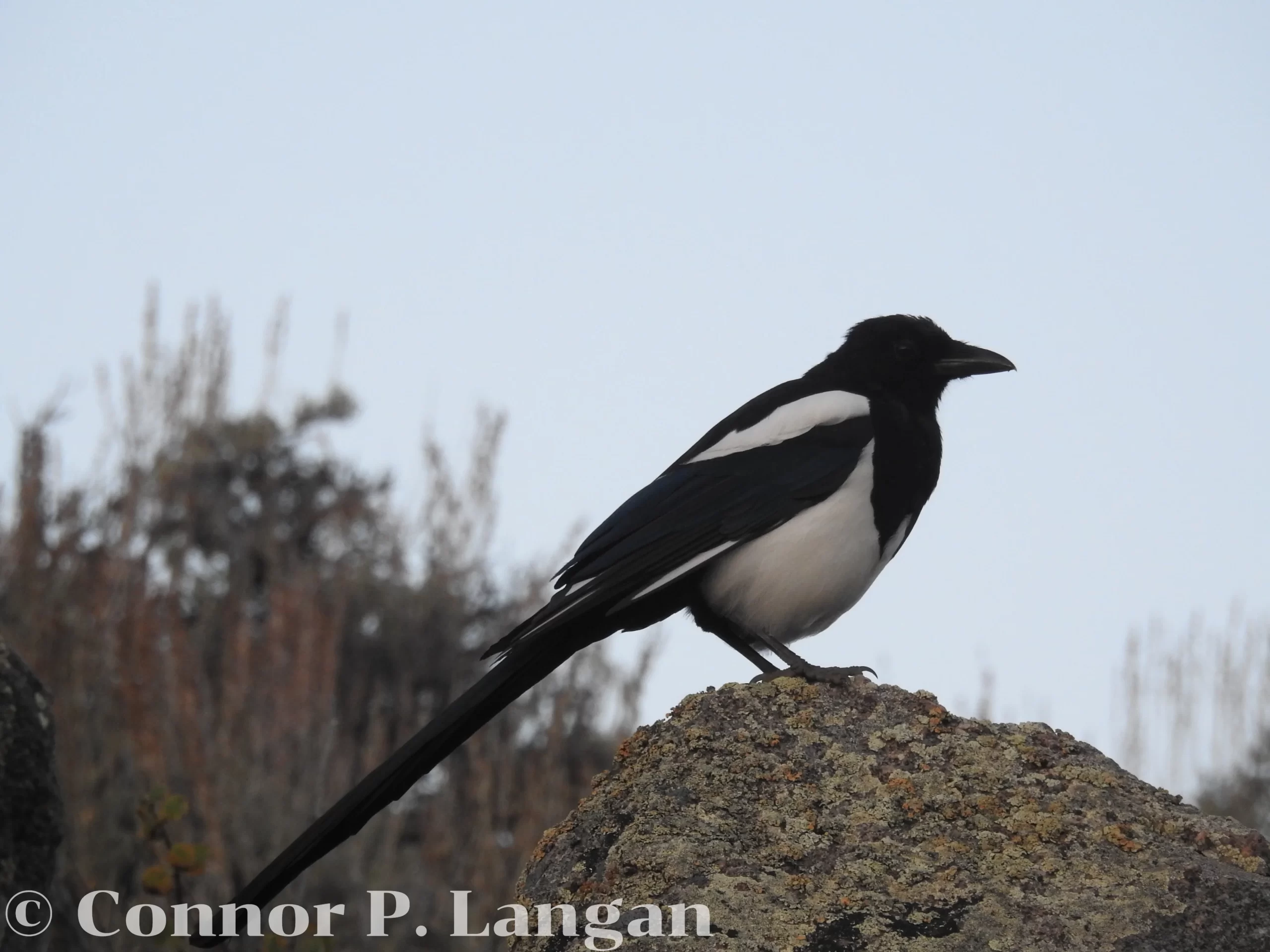Many are familiar with magpies thanks to their bold personalities, but what are magpies? These birds are well-known throughout much of their range, but most people who observe them do not know much about these creatures. So, what are magpies?
By now all of you have surely figured out that magpies are birds – that much is certain. Indeed, magpies are sizable songbirds that range in size from about 15 to 24 inches long. These birds have long, prominent tails and large beaks that are capable of handling a varied diet.
Table of Contents
Now that we’ve broadly answered the question, “What is a magpie?” let’s discuss the relatives of these birds. For instance, are magpies corvids?
Are Magpies Corvids?
You may have heard of the Corvidae family. Corvids are a group that includes crows, ravens, and jays, but what are magpies related to? Are magpies corvids?
Yes, magpies are members of the well-known Corvidae family! Therefore, for those wondering, “Are magpies related to crows?”, the answer is yes – they are related.
However, this does not mean that magpies and crows are one and the same. Think of crows and jays as cousins rather than close kin for a magpie. The Holarctic group of magpies is closely related to both crows and jays, but these magpie types are distantly related to the other two groups of magpies.
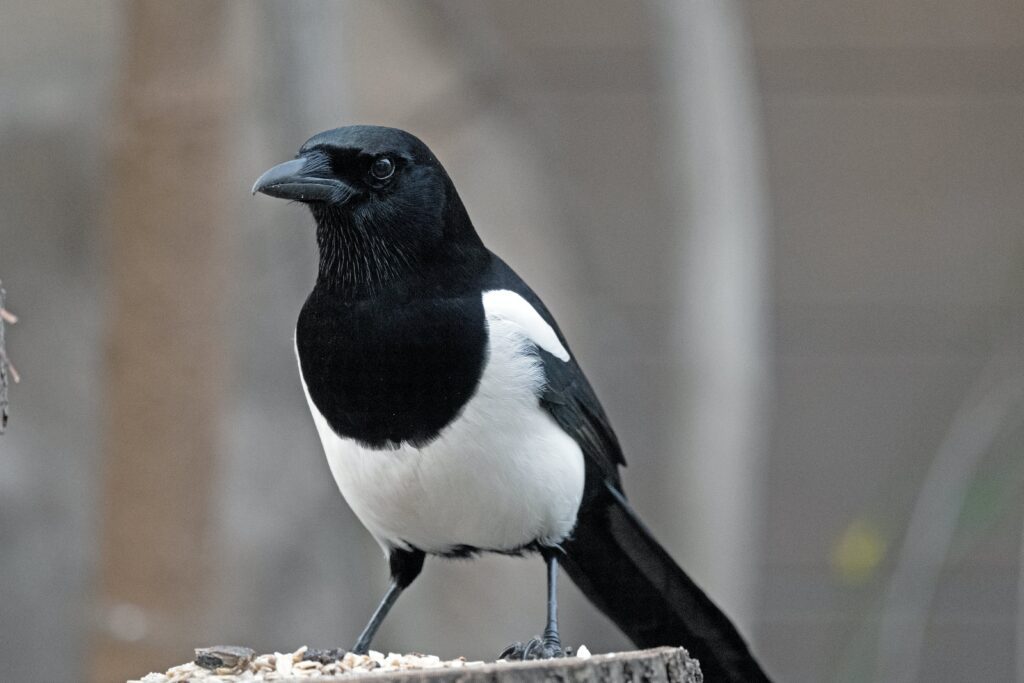
Types Of Magpies
Magpie species can be found in many different parts of the world, but how many different types of magpies are there? Well, 18 true magpies are currently recognized and divided into 3 different groups. One group is the Holarctic magpies. These birds will be the group that is familiar to most people, as they are found throughout much of the northern hemisphere.
Holarctic magpies are all rather plain in their plumage coloration, as the 7 species in this group are all black and white. Some familiar magpie species in this group include the Black-billed Magpie, Eurasian Magpie, and Oriental Magpie.
Another group of magpies is known as the Oriental magpies. Making matters confusing is the fact that the species named “Oriental Magpie” is not included within the group of magpies known as “Oriental magpies”. Rather, Oriental magpies include 9 colorful magpies from 2 different genera. They are native to different parts of Asia, and their feathers are dazzling colors such as green, red, and blue.
The third group is known as the Azure-winged magpies. These types of magpies are represented by two similar-looking birds – the Azure-winged Magpie and the Iberian Magpie. The Azure-winged Magpie is native to eastern Asia, while the Iberian Magpie can be found in the Iberian Peninsula of Spain and Portugal. Both have striking blue wings and a long tail.
There are plenty of other types of magpies by name, but any bird not mentioned above is not a true magpie.
Now that we know more about the different types of magpies, we can discuss where magpies can be found. So, where do magpies live?
Where Do Magpies Live?
Where are magpies found? If you’re a magpie fan, you may be curious about where you can find these creatures. So, where do magpies live? Moreover, are there magpies in the US and Europe?
Yes, magpies can be found in the United States, Europe, northern Africa, the Middle East, and much of Asia. True magpies are not found in places such as Central America, South America, or Australia.
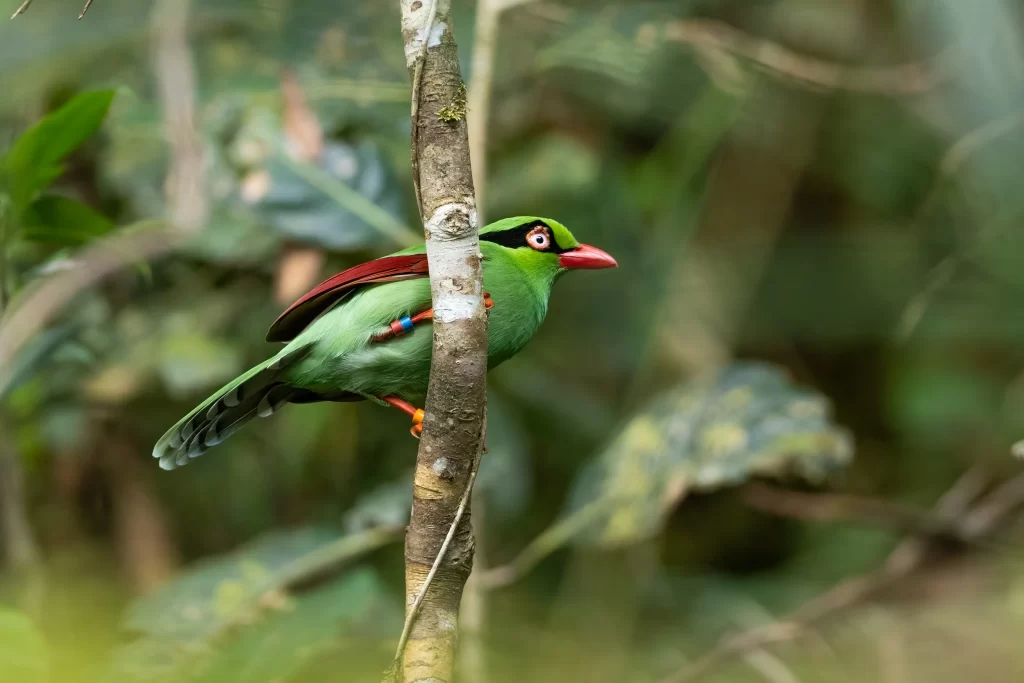
The two magpie species native to the United States include the Black-billed Magpie and the Yellow-billed Magpie. Europe is home to the Eurasian Magpie and Iberian Magpie. So, where do magpies live in the US?
Well, they are native to much of the western United States, Alaska, and the Upper Midwest. Therefore, look for magpies in Colorado and other western states. Both American magpies are native to California, making it the only state with multiple magpie species. It is extremely rare to see magpies in Texas, while there are no magpies in Florida and other eastern states.
Do Magpies Migrate?
Plenty of animals are migratory by nature. Songbirds, gulls, waterfowl, shorebirds, and so many more undergo long migratory journeys annually, but do magpies migrate? If so, where do magpies migrate to?
Magpies are not known to be migratory. However, some magpie types may engage in short movements during certain times of the year like certain woodpecker species, but they are not considered to be migratory.
Do Magpies Mate For Life?
Birds have complex mating systems that are often not quite as simple as forming a pair and sticking with a partner. So, do magpies mate for life? Moreover, are magpies monogamous?
Yes, magpies are monogamous! Well, a magpie is seemingly about as monogamous as a bird can be, anyway. However, this does not mean that they necessarily mate for life. Although some magpies may mate with the same bird for multiple years in a row, others will choose new mates every year. Okay, so why do magpies mate for life in some cases but pick new mates every year in others?
Well, although magpies live longer than many of their songbird counterparts, many still live for only a few years at best. Therefore, one of the two in a magpie pair may die in the nonbreeding season. Otherwise, a magpie pair may split up following an unproductive nesting season the previous year.
Therefore, magpies display a form of monogamy like that of crows and jays whereby a pair often remains together until one of the birds dies. However, this does not mean that the birds will be loyal to one another. Indeed, both males and females may engage in extra-pair copulations.

Magpies form pair bonds following a courtship display that begins when a female begs for food from a prospective mate. The display then evolves to each bird spreading their tails and engaging in other behaviors.
How Long Do Magpies Live?
So, if magpies mate for life, how long do magpies live? A magpie bird can survive for a bit longer in captivity when they’re in an environment free from most threats. However, in their wild environments, they tend to live for around 5 years, but the longest-lived magpies can survive for around 10 years.
There’s no question that magpies live long lives for birds, but it’s fair to wonder how magpies are treated around the world. Are magpies protected?
Are Magpies Protected?
Some may regard magpies as pests and want to eliminate some, while others may have an interest in keeping magpies as pets. If you share either of these sentiments, this will involve impacting populations of wild magpies. Are magpies protected, or are people free to do with them as they please? What are magpies afforded as far as legal protection?
Well, the two types of magpies that are native to North America are protected by the Migratory Bird Treaty Act. This means that it is illegal to harm Black-billed Magpies and Yellow-billed Magpies. Moreover, it is illegal to remove them from their natural environments for the pet trade. Meanwhile, magpies in 13 European countries are protected by the International Convention on the Protection of Birds.
Are Magpies Smart?
If you’re familiar with the corvid family then you will know that these animals have a reputation for being intelligent. Magpies are certainly no exception, as these birds are known to be very smart creatures. So, why are magpies smart, and what are magpies capable of doing?
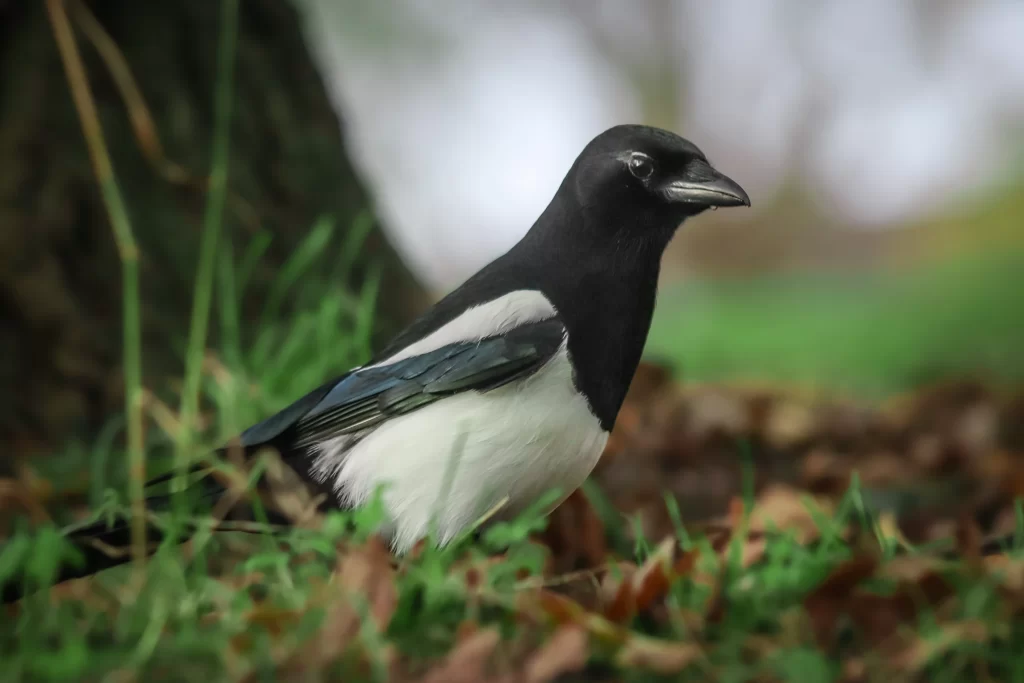
Well, first I will point out that using human-devised means of measuring an animal’s intellect cannot possibly convey how smart an animal truly is. Some animals may not be able to pass the tests that we have created for them, but this does not make them dumb.
The belief held by some that we can accurately measure an animal’s intellect is no doubt an ignorant thought, but I digress. Here are some magpie facts that will give you an idea of their intellectual capacities:
- Eurasian Magpies have proven that they can recognize their own reflections in a mirror – meaning they are one of the only bird species known to be capable of this feat.
- Black-billed Magpies learned to follow indigenous people so they could eat scraps of bison that they killed.
- Like their crow relatives, magpies are terrific when it comes to memorizing the faces of humans.
Do Magpies Like Shiny Things?
There are plenty of stories of magpies picking up shiny objects, but are they actually attracted to such items? Moreover, do magpies have a love for all things shiny?
Contrary to popular belief, corvids are seemingly not attracted to shiny objects. This assertion has been supported by numerous studies. Corvids such as magpies are curious creatures by nature, so they may investigate a novel shiny object near their territory. However, it is not likely that they will decorate a nest with shiny objects or pay them much attention once they’ve discovered what they are.
Can Magpies Talk?
Some have praised magpies for their abilities to mimic human speech, but can magpies talk? It turns out that, yes – magpies are capable of talking. However, this ability would be more accurately described as mimicry as opposed to talking given that magpies can only repeat what they hear from humans. Several magpie types are known to be excellent mimics. Additionally, the Australian Magpie has been reported to be a fantastic mimic, but remember that these birds are not truly magpies.
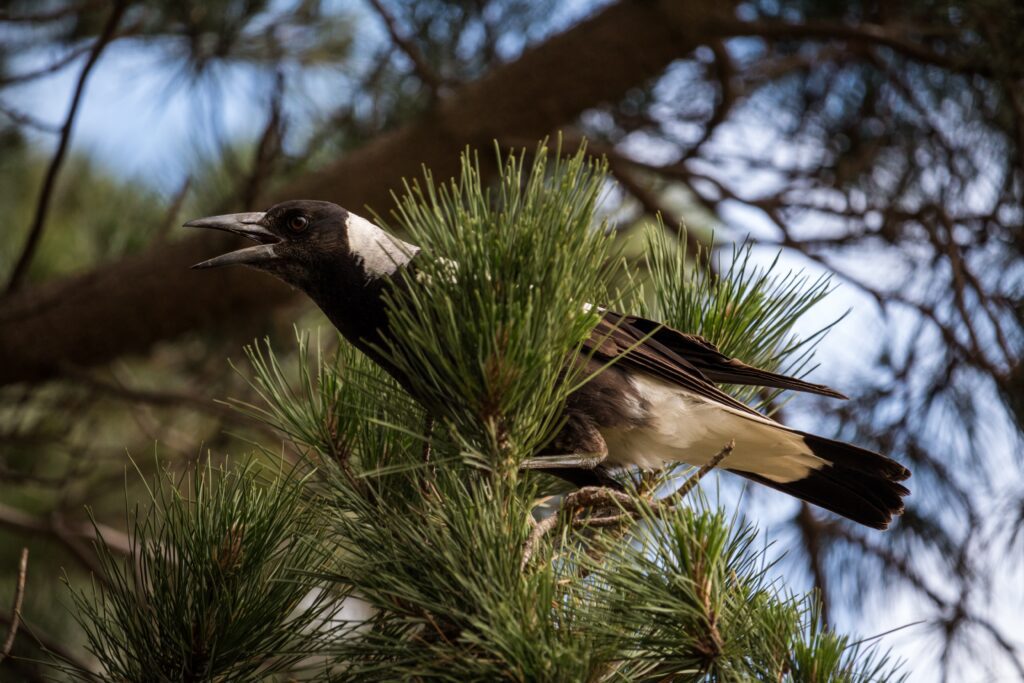
Conclusion
Now that you’ve read more about these crafty corvids, you should be able to answer the question, “What is a magpie?”. There is a greater variety of magpies than people realize, and these intelligent animals can be found in a dazzling array of colors. Some are closely related to their corvid kin, while others are distant relatives. No matter the type of magpie, all species are intelligent birds that are often misunderstood.

